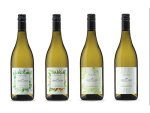A trade expert has backed up comments by agricultural trade envoy Mike Petersen, who says New Zealand is facing its most challenging time in trade in 30 years.
Petersen told Rural News that the established rules on trade via the World Trade Organisation, particularly for agricultural products, are at risk from the US-China trade war.
While the products being targeted now are not NZ products, the risk of spillover into our products is very high, he says.
A former diplomat and executive director of the NZ International Business Forum, Stephen Jacobi, agrees any trade war could be a big medium-term risk to NZ exports.
He says it is not a major risk currently but depending how it evolves further it could well be.
“We don’t want the contagion to spread to other areas,” he says.
While Jacobi says the current situation is unlikely to directly affect our trade with the US, “you can never be sure”.
“The way global trade is so interconnected these days through global value chains you can never be sure. But I would think we are probably not going to get caught in that.
“In China we might benefit in the short term, because if China takes action against the American exports of meat products, dairy products, wine and things like that, they are all things we sell to China,” he adds.
“So we could replace their products. But if we replace the products they sell to China, [those products] will need to go somewhere else so we may face increased competition elsewhere.
“The bigger picture is that markets will very quickly become destabilised and that can’t be good for our exporters.”
Jacobi says there are questions about what happens in the inevitable trade dispute between China, the US and the WTO. Does New Zealand participate in that?
“The US won’t appoint any appellate body judges in the WTO so what does the future of the WTO dispute settlement system look like? All these are big global strategic issues that will bite.”
He says some agricultural sectors are very concerned it might cast a shadow over international trade.
“I don’t quite see it at that level, but it certainly could occur – depending on what happens.”
NZ is already doing all it can.
“We can maintain our lines of communication in China and the US, we can try to use opportunities we have to calm them down. I’m not sure anybody is particularly listening.
“We can make our voice known in the WTO. We can make decisions about whether or not to join actions against US protectionism in the WTO; I think we should be doing that. We can continue on the path we set which is to negotiate high quality, ambitious, comprehensive trade agreements like CPTPP and the one we hope to do with the EU.”
Jacobi believes the best thing NZ can do is continue with partners who see the world the same way, to free up trade.
“For example the CPTPP – getting it into force as soon as possible, getting other countries to sign it, making it quite clear to the Americans what they are missing out on – all those things are important.”
But we must also keep our strong relationship going with the US, he says.
“I am not suggesting we turn our back on them either.
“There are important economic interests in the US that we want to try to maintain.”



















